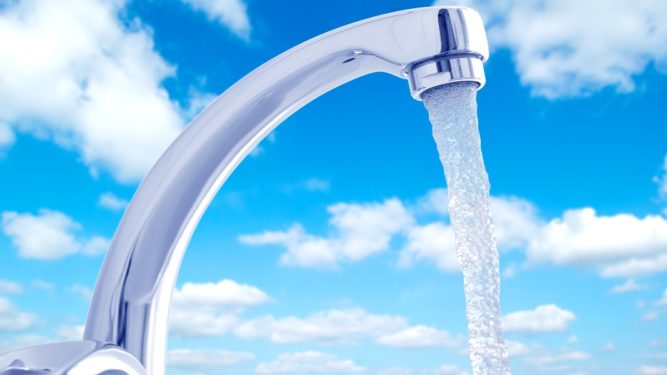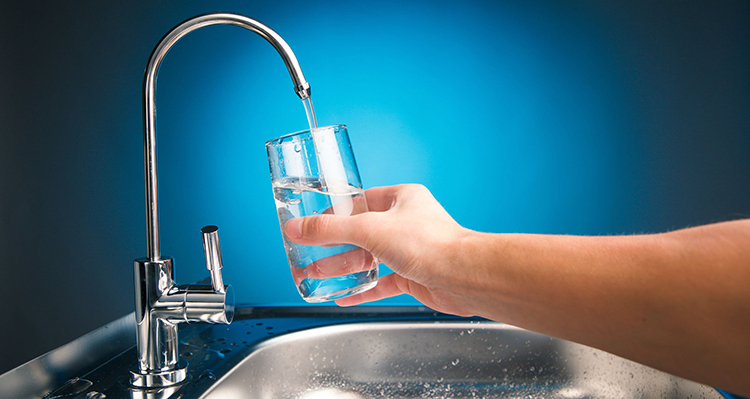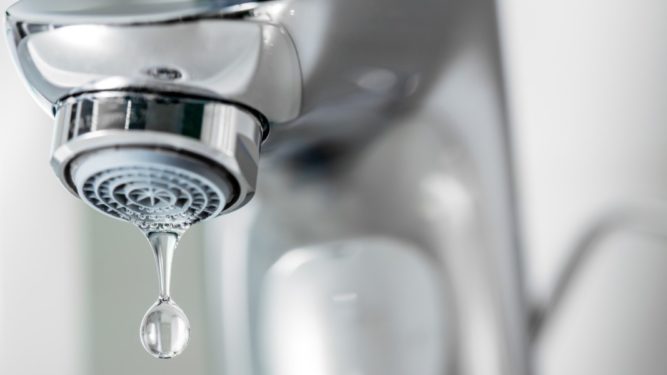Happening Now
The City of Asheville Water Department realizes that some customers have experienced unexpectedly high bills as a result of an underperforming Automated Meter Reading, or AMR, transmitter. A high utility bill associated with a failed transmitter is usually preceded by an unusually low utility bill. The Water Department makes every effort to notify customers by mail prior to receiving a high bill related to transmitter failure as the problem is identified.
The mechanical part of the current water meters are measuring usage correctly, however if the transmitter has failed the water meter has to be manually read. After two consecutive zero reads occur, a work order is created to manually read the water meter. The correct read from the meter is then used to generate a bill that includes all unbilled consumption. The City of Asheville is evaluating options to further mitigate zero reads by manually reading water meters registering zero consumption, as well as other options.
That’s why the City of Asheville is in the process of replacing the AMR system with an Advanced Metering Infrastructure (AMI) system. Replacement of the system is actually more cost effective than replacing the batteries on the AMR system currently reaching end of life. The system will also allow customers to monitor their water consumption through a real time dashboard. This will allow both customers and the Water Department to identify potential leaks or other issues that could result in an unexpectedly high bill.
The Water Department and outside contractors are currently working to procure equipment, finalize easements, and map out installation of data collectors to best address the needs of our more than 63,000 residential and business customers in Buncombe and Henderson counties.
The system will also allow customers to monitor their water consumption through a real time dashboard, currently scheduled to launch in fall 2024.
The City of Asheville is bound by N.C. statute to charge for services provided. The City of Asheville does offer payment plans to assist customers with high utility bills.
Customers can contact Customer Services at (828) 251-1122 to establish a payment plan.
Find FAQs HereBackground
On July 26, 2022, the Asheville City council voted unanimously to approve the Advanced Metering Infrastructure Project, or AMI.
Staff recommended Council approval of the system after an extensive research period designed to identify the best product to meet our community’s needs.
The new AMI system will replace the Water Department’s current automated meter reading system now reaching the end of its useful life cycle. The newly approved AMI system will utilize a City owned fixed network of antennas and transmitters to relay data directly to the database.
This new method removes the need for staff to collect data by driving with a receiver in proximity to existing water meters.
Implementation of the new system will affect all of the City of Asheville’s 63,000 water connections that serve more than 150,000 customers.
Timeline
July 2022 – City Council approves funding of AMI project
Fall 2022 – City and contractor meetings
Spring 2023 – Network infrastructure installation for data collection
Summer 2023 – Water meter exchanges to begin
July 2024 – As of July 2, more than 18,000 new meters have been installed, which represents 29 percent project completion. Substantial completion is scheduled for 2025.
August 2024 – As of August 5, there have been 20,636 new meters installed, representing 32 percent completion.
September 2024 – As of September 4, there have been 24,440 meters have installed, representing 38.7% project completion.
Supporting Documents
AMI Project Presentation at Council Retreat March 17, 2022
Staff Report to City Council July 26, 2022
Notification Letter & Postcard
Frequently Asked Questions Letter
FAQs
What is AMI?
AMI stands for Advanced Metering Infrastructure. According to the American Water Works Association, this “fully integrated system of meters and information systems enables communication between meters and utilities.”
What are some of the benefits of AMI meters?
Soon you will be able to:
• Easily access and monitor your water use
• Set alerts to help detect leaks and spikes in your water use, even when you’re not home
• See fewer Water Department trucks on the road reading water meters every day, which will help us lower our carbon footprint
This system will enable the City to more efficiently and proactively maintain our water infrastructure so we can support our community as it grows.
When will my installation occur?
Installations will begin once all the necessary infrastructure and testing have been completed and the required number of meters to begin the project have been delivered. It will take around 24 months to complete all of the meter installations.
Installations will be conducted gradually throughout the Asheville service area based on meter reading routes.
• Customers will receive a notice about 5 weeks before their new meter will be installed
• A postcard reminder will be delivered about 2 weeks before meter installation occurs
• A Door Hanger will be left at your home or business to let you know any important details about your new meter installation
Why is the Water Department replacing our water meters?
The majority of the City’s water meters have reached/are reaching the end of their useful lives. In order for us to consistently and equitably measure the consumption of water for everyone in our community, we needed to replace our whole water meter system.
Installing an AMI water system will help minimize the potential for missed or occasionally inaccurate reads, which we hope will increase trust in the accuracy of every water bill. It will also help us to provide faster service with daily usage data that you can use to help spot potential leaks or unexpected consumption. It will even eliminate the need for someone to drive by to collect your meter read as we do today with our current AMR system. Anyone who has a meter that must be manually read will be updated to this new technology which will greatly reduce the need for a meter reader to come onto the property (unless there is an issue with the meter), increasing the privacy of your home.
Will these new meters serve all customers equally?
Yes; the AMI system is designed to measure the actual usage of your water and bill you based on that amount.
No more, no less.
Will I have to be at home during the installation and what am I required to do?
Most of the time, no one is required to be present because most meters are located outside. The meter installer will leave a notification that your installation has been completed and instructions on what to do if it was not able to be installed.
Do I have to schedule my new meter installation?
No. We will be sending out 2 different notifications prior to you receiving your new meter so you will know the general time-frame of when it will be installed.
Will my water service be interrupted during the installation?
Yes, the water service will be turned off for 15-30 minutes. The installer will turn the water back on prior to leaving your home.
How long will it take to install the AMI meter?
In most instances, installation should take around 30 minutes, sometimes less than that. Some installations – mostly larger commercial meters – may take longer.
How do I identify that the meter installer works for you/is part of the project?
We encourage customers to ask for identification from anyone who comes to their door. The AMI metering installers from PVI will
• arrive in a company-marked vehicle
• be wearing an easily identifiable uniform
• have a PVI contractor company badge
• knock on your door before they change your meter
• will NOT need to enter your home to change your meter (the meter is outside)
What if I have issues or questions after my new meter has been installed?
Installation details will be left at your residence or business. If you notice any problems immediately after installation, you should contact our installation partner, PVI. Their phone number is (828) 570-5377.
How do I know that the new AMI meter reading is accurate?
The reading at the meter is regularly converted into a digital format using technology that has proven to be highly reliable and secure, as noted in project studies, pilot programs, and large-scale implementations. By having this information relayed in a digital format, it eliminates the potential for human error in manual meter reading and can be done remotely. Your hourly water use data will be available to you 24 hours a day, 7 days a week from the new customer portal.
How will I know that you have my meter reading and not someone else’s?
The endpoint that sends your meter reading has a unique identifier that is transmitted along with the read data. This identifier is compared electronically to your account record to ensure that the meter reading matches the meter assigned to your account.
Is my account information secure?
Yes. The only information that is being transmitted is your water use. None of your personal account details will be transmitted.
What if I have questions about the last meter read before my upgrade?
Digital photographs will be taken of the last meter reading to use as a reference point. The installer will provide these photographs to the City and the billing staff, who will have this information available to answer your questions.
Why is the water meter lid locked?
The City has upgraded the water meter lids to a composite material that is very light weight. To secure the lid so it does not float away in case of water events, the new lids will be locked and only opened when a meter or water pipe inspection is necessary. The meter box and lid will protect our new meter asset and upgraded technology so they can function in an optimal manner. If you ever need to turn off your water from the meter, you can call us at (828) 251-1122 and we will be available to assist you 24/7. You will soon be able to access your current meter reading whenever you want from your smartphone, tablet, or computer via the new customer portal, so don’t forget to sign up with your account number and customer number.
If I don’t have an internet capable smartphone, tablet, or computer, how can I check my water usage via the new customer portal?
The City is happy to walk you through your bill on the phone or in person at Customer Service so you can know when and how much water you have used. If you would like to see the data from a day-to-day perspective but don’t have access to an internet-capable device, come into the Water Department office and we will show you your usage. Another option is to visit your local library and use one of the available computers there when you use your free library card.
How can I save money with the new AMI meters?
The new meters themselves can’t save you money; however, the information they provide can help you figure out if you are wasting water or potentially have a leak. We will be posting troubleshooting and conservation ideas on the new customer portal and on our website. Implementing some changes in your use and repairing an unnoticed leak, even if it’s just a small one, could help you reduce your water consumption, which could help you lower the amount of your water bill.
Contact Information
Customer Service: 828-251-1122






